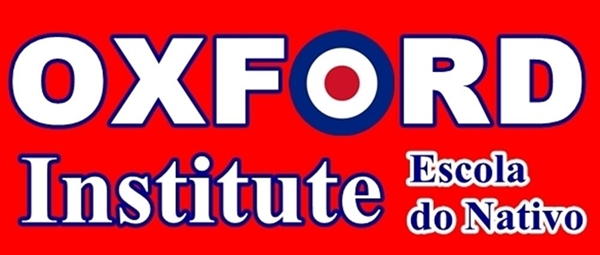Instruções:
Essas aulas de inglês são para alunos intermediários e avançados de inglês como segunda língua. Eles incluem “Ler”, “Ouvir” e “Escrever”. Basta seguir a lição respondendo às perguntas à medida que as encontra.
 Todas as vagas em negrito devem ser traduzidas para seu próprio idioma para ajudar na compreensão do novo vocabulário.
Todas as vagas em negrito devem ser traduzidas para seu próprio idioma para ajudar na compreensão do novo vocabulário.
Please LIKE & SUBSCRIBE my Youtube channel https://www.youtube.com/c/SteveBradeley/videos
~~~~~~~~~~~~~~~~~~~
Introduction:
What is the real message of Animal Farm? (George Orwell 1945)
The grand theme of Animal Farm has to do with the capacity for ordinary individuals to continue to believe in a revolution that has been utterly betrayed. Orwell attempts to reveal how those in power—Napoleon (pig) and his fellow pigs—pervert the democratic promise of the revolution. “That rings a bell!”
VOCABULARY: capacity, utterly, betrayed, That rings a bell.

Animal Farm is a beast fable, in the form of satirical allegorical novella, by George Orwell, first published in England on 17 August 1945. It tells the story of a group of farm animals who rebel against their human farmer, hoping to create a society where the animals can be equal, free, and happy.
VOCABULARY: beast, fable, satirical, allegorical, rebel, farmer
One of Orwell’s finest works, it is a political fable based on the events of Russia’s Bolshevik revolution and the betrayal of the cause by Joseph Stalin. The book concerns a group of barnyard animals who overthrow and chase off their exploitative human masters and set up an egalitarian society of their own.
VOCABULARY: fable, based on, Bolshevic, betrayed, barnyard, to overthrow, chase off, exploitive,masters, egalitarian
LISTENING SECTION ONE: Watch the video and answer the three questions below.
QUESTIONS: Common expressions
-
-
-
- What does ‘let them rot’ mean?
- “Remove man and we will become free.” What did Napolian mean when he said this?
- “Seize the day.” What did he mean?
-
-
LISTENING SECTION TWO: Watch the video and answer the five questions below.
The commentator has an Australian accent and speaks quite quickly. Can you understand him.
QUESTIONS:
-
-
-
- Explain the meaning of an ‘allegory’?
- What is the meaning of the word ‘whopping’?
- An ‘extended metaphor’ what is this?
- What is a ‘pen name’?
- What is a ‘totalitarian regime’?
-
-
SECTION TWO:
Animal Farm, anti-utopian satire by George Orwell, published in 1945. One of Orwell’s finest works, it is a political fable based on the events of Russia’s Bolshevik revolution and the betrayal of the cause by Joseph Stalin. The book concerns a group of barnyard animals who overthrow and chase off their exploitative human masters and set up an egalitarian society of their own. Eventually the animals’ intelligent and power-loving leaders, the pigs, subvert the revolution. Concluding that “all animals are equal, but some animals are more equal than others” (with its addendum to the animals’ seventh commandment: “All animals are equal”), the pigs form a dictatorship even more oppressive and heartless than that of their former human masters.
VOCABULARY: anti-utopian, published, finest works, political fable, betrayal, overthrow, exploitive, egalitarian, power-loving, to subvert, addendum, commandment, oppressive, heartless, former
SECTION THREE:
George Orwell, pseudonym of Eric Arthur Blair, (born June 25, 1903, Motihari, Bengal, India—died January 21, 1950, London, England), English novelist, essayist, and critic famous for his novels Animal Farm (1945) and Nineteen Eighty-four (1949), the latter a profound anti-utopian novel that examines the dangers of totalitarian rule.
Born Eric Arthur Blair, Orwell never entirely abandoned his original name, but his first book, Down and Out in Paris and London, appeared in 1933 as the work of George Orwell (the surname he derived from the beautiful River Orwell in East Anglia). In time his nom de plume became so closely attached to him that few people but relatives knew his real name was Blair. The change in name corresponded to a profound shift in Orwell’s lifestyle, in which he changed from a pillar of the British imperial establishment into a literary and political rebel.
VOCABULARY: essayist, critic, latter, profound, totalitarian, East Anglia, nom de plume corresponded, shift, pillar of society, imperial establishment, literary, rebel
FULL MOVIE: You can watch the full movie here.
WRITING EXERCISE:
Write 150 words about what you think about the way George Orwell’s message about human personality and the way that so called democratic systems eventually fall apart.
GRAMMAR TO USE: Use one or two examples of the present perfect. This video explains how to use this tense. You might want to watch the video before you begin your writing.

